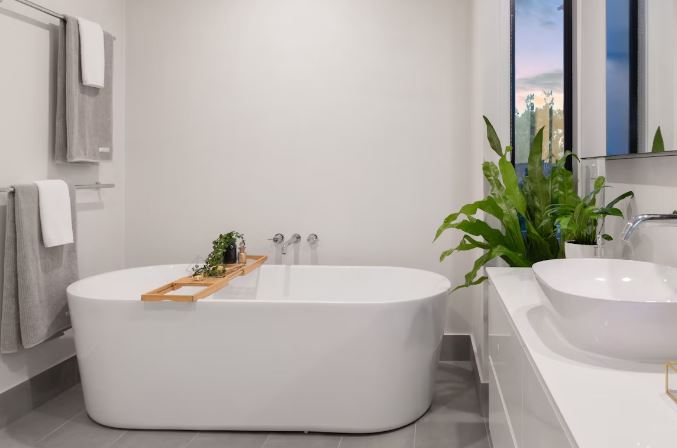-
Shop
- Furniture
- Kitchen
- Bathroom
- Home & Garden

Is your water heater making a lot of noise all of a sudden? Don’t worry, you’re not imagining things (and hopefully, there isn’t an actual waterfall in your house).
This rumbling or whooshing sound can have a few causes, some simple to fix yourself.
In this post, I’ll explain why your water heater sounds like water running and show you how to get your heater back to running quietly.
It’s quite common for a water heater to make noises that sound like running water.
This often happens when water is entering the tank to refill it after hot water has been used.
In modern, high-efficiency water heaters, condensation can form inside the tank, which can also make these running water sounds.
Also Check Out Our: Instant 14kW Electric Tankless Water Heater
This is because these heaters are designed to extract as much heat as possible from the combustion gasses before they are vented outside, causing the water vapor in the gasses to condense.
These types of sounds are normal and don’t necessarily mean there’s anything wrong.
If you’re hearing these sounds and everything else seems to be working fine (like you have enough hot water and there are no signs of leaks), then there’s no need to worry.
It’s just your water heater doing its job.
If you keep hearing the sound of running water continuously, it might mean there’s a leak or a broken pipe somewhere.
Over time, older water heaters can develop leaks due to corrosion of the tank lining.
This happens because the protective lining inside the tank wears away, exposing the metal to water and causing it to rust and eventually leak.
If there is a leak, the water heater will keep trying to refill itself, which causes that ongoing sound of running water.
So check for leaks! Inspect the area around your water heater.
Also Read: Tankless water heater in closet
Look for any signs of water pooling or damp spots. You can also check the pressure relief valve and the drain valve at the bottom of the tank for leaks as well.
Small leaks can sometimes be repaired by tightening fittings or replacing parts, but if the tank itself is leaking, you will likely need to replace the entire water heater.
Another possible reason for the running water sound could be a faulty pressure relief valve.
The pressure relief valve is an essential safety feature designed to release water if the pressure inside the tank gets too high, preventing the tank from bursting.
This valve typically opens when the pressure exceeds a set limit, allowing water to escape and thereby reducing the pressure inside the tank.
If the valve is stuck open or not functioning properly, it can cause water to keep flowing out, making it sound like running water.
You might also notice water pooling near the valve or a constant drip from the valve’s discharge pipe.
To fix this issue, turn off the power to the water heater and shut off the water supply. Then, check the valve for any obvious signs of damage or debris that might be causing it to stay open.
In many cases, replacing the valve is the best solution.
This is a relatively simple and inexpensive repair, but if you’re not comfortable doing it yourself, you should call a professional plumber.
In some cases, a loose water inlet valve can also cause a running water sound.
The inlet valve controls the flow of cold water into the tank, and if this valve isn’t tightened properly, it can let water trickle into the tank constantly.
This constant trickle can create a sound similar to running water.
To address this, you should first locate the water inlet valve on your water heater.
This is usually found at the top of the tank where the cold water supply line enters. Make sure the valve is fully closed and then check to see if it’s secure.
You might need to use a wrench to tighten the valve if it’s loose.
Be careful not to overtighten, as this can cause damage.
If you’re unsure about how to proceed or if tightening the valve doesn’t stop the noise, it’s a good idea to contact a plumber to ensure everything is in proper working order.
Also Check Out Our: Compact 3KW Instant Electric Tankless Water Heater
If you cannot get the issue resolved after these checks, it may be time to consider replacing the water heater, especially if it is an older model nearing the end of its lifespan.
Water heaters normally range from $1,750 to $2,000.
Maybe get a 40-gallon Rheem water heater with a 6-year warranty, has a good build quality and you would not face any issues in the near future.
FAQs
A noisy water heater isn’t always dangerous, but it can be a sign of trouble. Normal sounds, like water entering the tank or condensation in high-efficiency models, are harmless.
But if the noise is continuous or unusual, it could indicate issues such as leaks, a faulty pressure relief valve, or sediment buildup inside the tank.
Your water heater might make noise when the water is off because it’s refilling after you used hot water, which is normal. However, if the noise is constant, it could mean there’s a leak, a faulty pressure relief valve, or a loose water inlet valve.
Yes, a water heater can make noise when heating. Electric heaters might hum, while gas heaters could have crackling or hissing sounds.
You might also hear popping or rumbling as the water heats and the tank expands. But if they get louder or more frequent, it might be a sign to check for sediment buildup or other issues.




Leave a comment